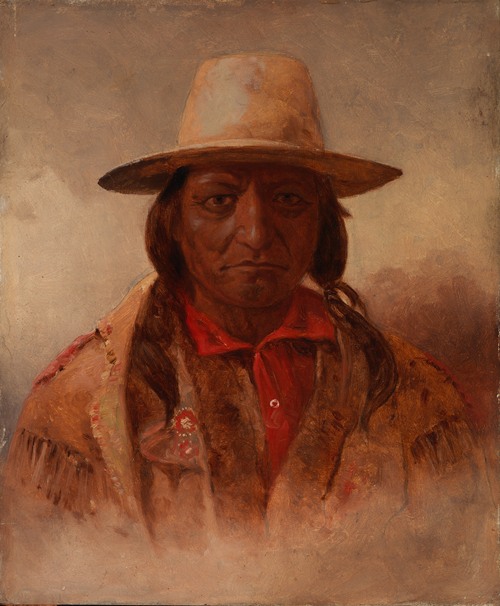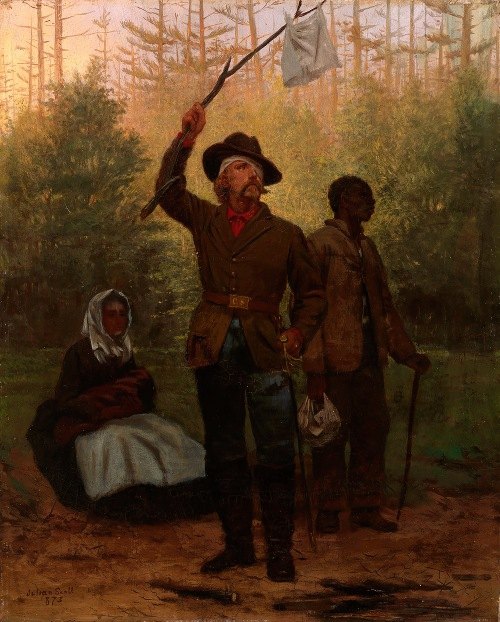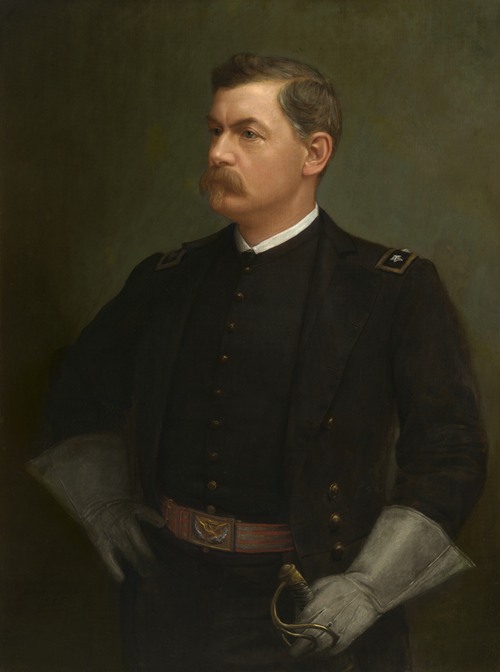




Julian A. Scott, was born in Johnson, Vermont, and served as a Union Army drummer during the American Civil War, where he received America's highest military decoration the Medal of Honor for his actions at the Battle of Lee's Mills. He was also an American painter and Civil War artist.
Julian Scott was the fourth child, of eight, born to Charles Scott (born 1815), a clockmaker, and his wife Lucy Kellum (1821 - 26 April 1855). Julian's siblings were Cleora (born 1841), Lucian (1843 - 19 July 1894), Alice (1844 – 1846), Julia (born 1847), Charlie (born 1849), H. Percy (born 1851) and George (26 April 1855 - 27 December 1863). Lucy Scott died in childbirth and Charles Scott remarried, in 1860, to Susan Pollard.
During the American Civil War, Julian's elder brother, Lucian, served with the 4th Regiment of the U.S. Artillery, was wounded at the Battle of Ball's Bluff, was taken prisoner in December 1864, and almost died at Libby Prison of starvation. Julian's younger brother, Charlie, enlisted at age 13 and became a bugler. After the war, Charlie moved to Missouri, then to Boston, where he became a physician. His brother, Percy, became an attorney in Illinois.
Scott married and had one daughter but, later, he and his wife separated.
Scott received his early education at the Lamoille Academy, known today as Johnson State College where the main gallery is named in his memory. Scott continued his studies, graduating from the National Academy of Design in New York and subsequently studied under Emmanuel Leutze until 1868. During the Civil War, Scott enlisted in the 3rd Vermont Infantry on June 1, 1861, at the age of 15 as a fifer and, in February 1865, received the Medal of Honor for rescuing wounded soldiers while under enemy fire during the Battle at Lee's Mills, Virginia.
When the war was over, he traveled to Paris and Stuttgart to continue his education. Scott's 1872 masterwork, the Battle of Cedar Creek, is located at the Vermont State House. The painting illustrates the contributions of his home state of Vermont in the American Civil War and is significant for its absence of glorification of war and instead shows the suffering and human sacrifice associated with war. Scott traveled west as part of a census party, painting Native Americans in New Mexico, Arizona, and Oklahoma. Many of his works from this expedition now hang in the University of Pennsylvania Museum of Art.
Scott was interred in Hillside Cemetery located in Scotch Plains, New Jersey.


